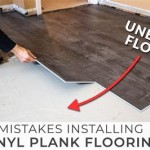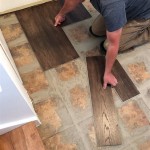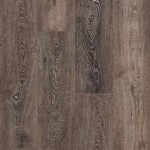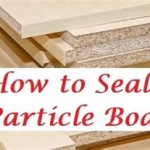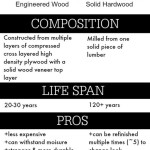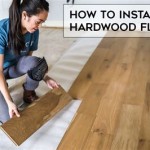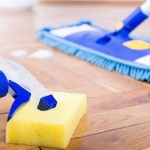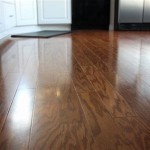Best Floor for Basement That Gets Water Stains Off in Bathroom
Basements, particularly those with bathrooms, are prone to moisture issues. Choosing the right flooring material is crucial for both aesthetics and longevity in these spaces. This article explores various flooring options suitable for basement bathrooms that experience occasional water exposure, focusing on materials that resist staining and are easy to clean.
1. Porcelain or Ceramic Tile
Porcelain and ceramic tiles are excellent choices for basement bathrooms prone to water. These materials are inherently water-resistant and highly durable. Porcelain, in particular, has a lower water absorption rate than ceramic, making it even more suitable for damp environments. Glazed porcelain and ceramic tiles are also stain-resistant, making it easy to wipe away water stains and other blemishes. The grout lines, however, are susceptible to staining and may require sealing to prevent discoloration and mold growth. A wide variety of colors, patterns, and textures are available, allowing for design flexibility.
An additional benefit of tile flooring is its ability to withstand temperature fluctuations, which can be a concern in basements. Furthermore, tile offers a cool surface underfoot, which can be particularly welcome during warmer months. However, tile can feel cold in winter, potentially requiring area rugs for comfort. Installation can be more complex than other flooring types and may require professional assistance.
2. Vinyl Flooring (Sheet Vinyl, Vinyl Tile, and Luxury Vinyl Plank)
Vinyl flooring is a popular choice for basements due to its affordability, water resistance, and ease of installation. Sheet vinyl offers a seamless, waterproof surface, minimizing the risk of water seeping through seams. Vinyl tiles and luxury vinyl planks (LVP) provide similar water resistance, with LVP mimicking the look of hardwood flooring. Modern vinyl flooring options are also available with enhanced stain-resistant coatings, facilitating effortless cleaning and maintenance.
Vinyl is relatively warm underfoot compared to tile and offers good comfort. It is also easier to install than tile, making it a suitable option for DIY projects. However, vinyl can be susceptible to damage from sharp objects and excessive moisture. Standing water, if not addressed promptly, can seep under the edges and damage the subfloor. While LVP and vinyl tiles are quite durable, sheet vinyl may be more prone to tears and punctures.
3. Engineered Hardwood
Engineered hardwood offers the aesthetic appeal of natural wood with enhanced moisture resistance compared to solid hardwood. Its layered construction, with a top layer of real wood and a core of plywood or high-density fiberboard (HDF), provides stability and reduces the risk of warping or buckling due to moisture. While engineered hardwood is more water-resistant than solid hardwood, it is not fully waterproof. Standing water should be wiped up immediately to prevent damage.
Engineered hardwood provides warmth and comfort underfoot and can add value to a home. It offers a wide variety of wood species and finishes to complement various design styles. However, it is generally more expensive than vinyl or tile and requires more care and maintenance to protect it from moisture damage. Scratches and dents can occur more easily on softer wood species. Regular sealing is recommended to enhance its water and stain resistance.
4. Concrete Flooring with Epoxy Coating
Concrete is a standard subfloor material in basements and can be finished to serve as the final flooring surface. An epoxy coating provides a durable, waterproof, and stain-resistant layer that protects the concrete from moisture and wear and tear. Epoxy coatings are available in a wide range of colors and finishes, including metallic and decorative options, providing design versatility. The seamless surface also eliminates grout lines, making cleaning and maintenance easier.
Epoxy-coated concrete floors are highly durable and resistant to impacts, chemicals, and abrasion. They are also relatively easy to clean and maintain. However, concrete can be cold and hard underfoot, potentially requiring area rugs for comfort. The installation of an epoxy coating can be a complex process, requiring proper surface preparation and specific application techniques. Professional installation is often recommended for optimal results.
Choosing the right flooring for a basement bathroom requires careful consideration of factors such as moisture levels, budget, and aesthetic preferences. By understanding the characteristics of different flooring materials, homeowners can select the best option to suit their needs and create a beautiful and functional basement bathroom.

Waterproof Flooring Solutions Carpet One Floor Home

What Is The Best Tile For Bathroom Floors Angi

What Are The Best Flooring For Basement In Homes

Best Bathroom Flooring Options

2025 Bathroom Flooring Trends 20 Updated Styles

Best Flooring For Basement Floor City

25 Bathroom Flooring Ideas Which One Do You Like The Most Pellak Construction

Waterproof Flooring Solutions Carpet One Floor Home

Best Bathroom Flooring Options

These Are The Best Flooring Materials For Your Bathroom
See Also
